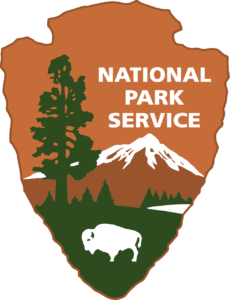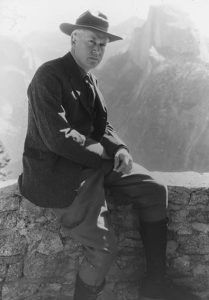National Park Service Celebrates Centennial Anniversary
It’s Time to Celebrate–and Re-Commit to–“America’s Best Idea”

This week the National Park Service celebrates its 100th birthday. On August 25, 1916, Congress enacted legislation proposed by President Woodrow Wilson to create the Park Service. To this date, creation of the Service remains one of the nation’s most important actions to protect America’s environment. (Documentarian Ken Burns–himself a national treasure–famously called the national park system “America’s best idea.”) And it’s an American-conceived idea that has resonated strongly in other nations around the world.
The concept of national parks actually predated creation of the Park Service by over a half-century. The first national park, Yellowstone, was authorized in 1872. The second, Yosemite, was formally created in 1890, though President Abraham Lincoln had actually set aside and protected from development both Yosemite Valley and the Mariposa Grove, at the height of the Civil War in 1864. By the time Congress got around to creating the National Park Service in 1916, 14 national parks already existed in the U.S.
Before 1916, the then-nascent system of national parks was “managed” by the federal government in a decidedly haphazard fashion. Yosemite National Park, for example, was patrolled in the late 19th century by the Buffalo Soldiers, a storied unit of the U.S. Army’s 9th Cavalry Unit consisting exclusively of African-American soldiers. Those troops did their level best to protect Yosemite from illegal wildlife poaching and logging, but their efforts were necessarily reactive and only somewhat effective. A more systematic approach to park management was necessary.
The need for the Park Service has been aptly summarized by National Geographic writer David Quammen:
“What the country did not have in 1916, but now realized it needed, was a coherent definition of what a national park is or should be, supported by a single agency empowered to manage, defend, and oversee the expansion of its scattered patchwork of parks and parklike monuments.”
Nevertheless, the notion of creating a National Park Service proved to be politically controversial. President Theodore Roosevelt–perhaps America’s foremost conservation President–supported the notion but was unable to secure passage of legislation creating the Park Service. In the end, it was the dogged advocacy of an unlikely national parks champion from the private sector who proved decisive in forming the National Park Service.

Stephen Mather was a wealthy businessman from California who made his fortune in the mining industry. But he was also an ardent conservationist who made it his second career and mission to advocate for creation of the Park Service. For well over a decade he wrote letters to the editors of major American newspapers, gave innumerable speeches across the country and lobbied government decision-makers. Ultimately, his tireless efforts proved successful.
Demonstrating that no good deed goes unpunished, President Wilson appointed Mather to serve as the first Director of the National Park Service. Mather’s vision, energy and passion for the cause of national parks distinguish him–even a century later–as the most influential Park Service Director in American history.
Mather’s dedication and innovative spirit were critically important in setting the path for the Park Service in its formative years. One example: our early national parks were conceived as natural cathedrals that could compete, in terms of creating public awe and inspiration, with the religious cathedrals and other cultural treasures of Europe. The original idea behind America’s national parks was purely homocentric: to set aside special places that the public could visit and enjoy in their majestic, natural state. It was only later–probably beginning with the creation of Everglades National Park in Florida in 1947–that the idea came into fashion that national parks could and should also be created primarily to protect the wildlife that inhabit them. That latter notion is today fully engrained in the Park Service’s mission and philosophy.
Political commentator Nicholas Kristof is spending his summer hiking the John Muir Trail in California, which includes Yosemite National Park. He took a break from his backpacking sojourn to offer reflections about the national park system that were published today in the New York Times. Kristof aptly observes:
“It was 100 years ago…that the United States established the National Park Service…As a result, our nation’s most valuable assets are owned not by private equity tycoons but by you and me…In an age of enormous inequality, these public lands are arguably our most democratic space…Our predecessors pretty much invented the idea of national parks and wilderness trails, bequeathing us an inheritance of incalculable wealth.”
Happy centennial anniversary to the National Park Service. It’s an occasion that all Americans should celebrate, and the Park Service is an institution we all should cherish.
(Note: this is the first of several reflections I’ll post this celebratory week on the National Park Service and our national park system. On Tuesday, 8/23: The More Obscure, Wonderful Achievements of the National Park Service; on Wednesday, 8/24: The Challenges Facing the National Park Service in Its Next 100 Years; and on Thursday, 8/25: A(n Admittedly Subjective) List of America’s Very Best National Parks.)
Reader Comments
One Reply to “National Park Service Celebrates Centennial Anniversary”
Comments are closed.






“To celebrate its centennial, the National Park Service is waiving its entrance fees
from Thursday, 8/25 through Sunday, 8/28.” – email from REI